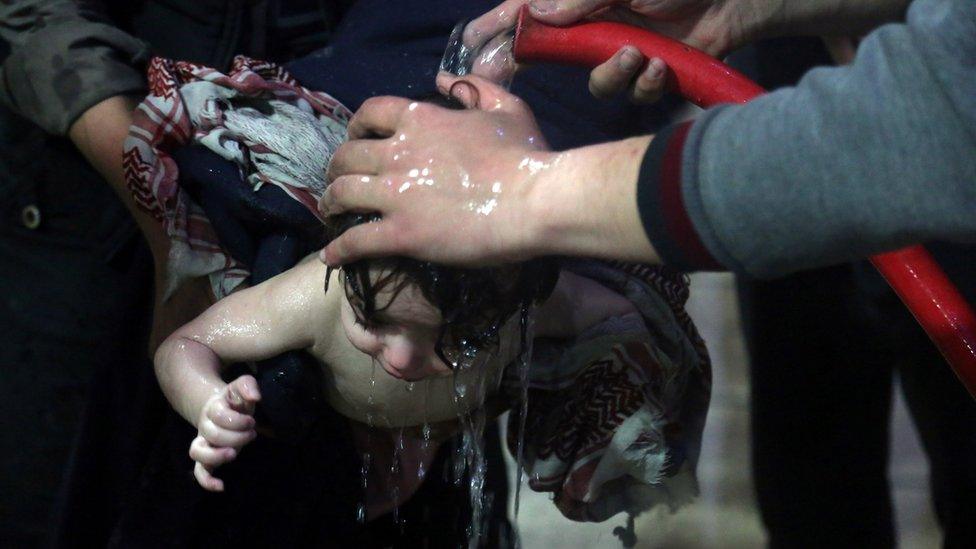UK calls for more chemical weapons powers
- Published
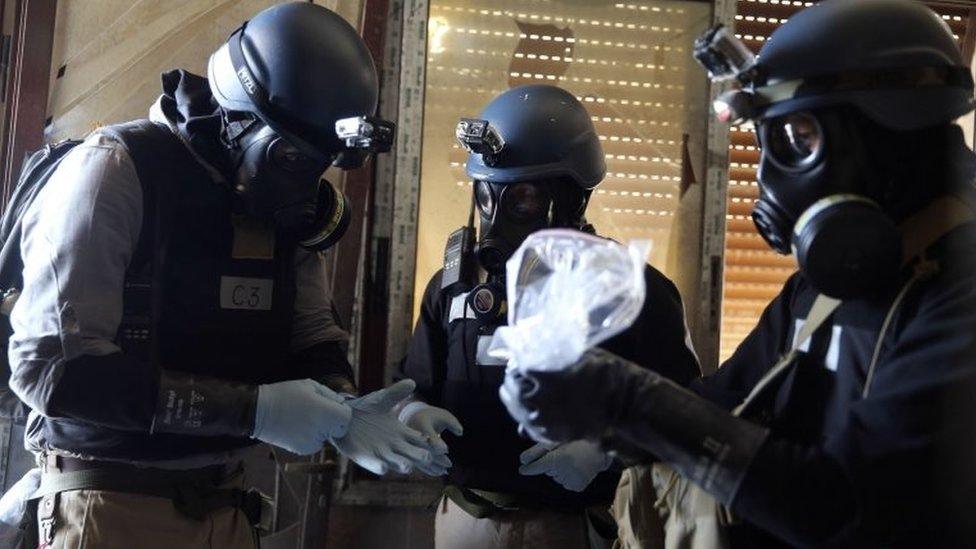
Inspectors can currently establish only whether chemical weapons have been used, not who is responsible
The UK has called for a vote on increasing the international chemical weapons watchdog's powers.
At a special session of the OPCW at The Hague, Foreign Secretary Boris Johnson said breaches of its chemical weapons ban could not be ignored, referencing attacks in Syria and Salisbury, Wilts.
The UK wants new powers for inspectors to assign blame for attacks, a proposal that is opposed by Moscow.
Inspectors can currently establish only whether such weapons have been used.
BBC diplomatic correspondent James Landale said British diplomats had launched a huge effort to gain enough support to win the vote on Wednesday.
But Russia opposed the plan, which might see its Syrian allies face further international condemnation, he added.
Mr Johnson told the OPCW meeting: "The tragic reality is that chemical weapons have been used and are being used all over again. And, as we've heard, attacks have taken place in Syria and in Iraq.
"Over three months after that appalling incident [in Salisbury], areas of Salisbury are still being decontaminated and three people are still being treated for effects of exposure but are out of hospital.
"We cannot ignore these breaches."
Under the 1997 Chemical Weapons Convention, 192 countries have agreed never to use or produce chemical weapons.
Mr Johnson said members "cannot allow the global ban on chemical weapons… to be eroded away".
Allow X content?
This article contains content provided by X. We ask for your permission before anything is loaded, as they may be using cookies and other technologies. You may want to read X’s cookie policy, external and privacy policy, external before accepting. To view this content choose ‘accept and continue’.
"At present the OPCW's experts will say where and when an attack happened but not who was responsible," he said.
"If we are serious about upholding the ban on chemical weapons, that gap must be filled. Attributing responsibility for an attack is clearly part of the OPCW's technical remit."
Syrian opposition activists, rescue workers and medics say more than 40 people were killed in a suspected chemical attack on the Syrian city of Douma in April.
France said it had "proof" that "chemical weapons were used - at least chlorine - and that they were used by Bashar al-Assad's regime".
The Syrian government denied the allegation. And its key ally Russia said it had "irrefutable evidence" that the incident had been "staged" with the help of the UK.
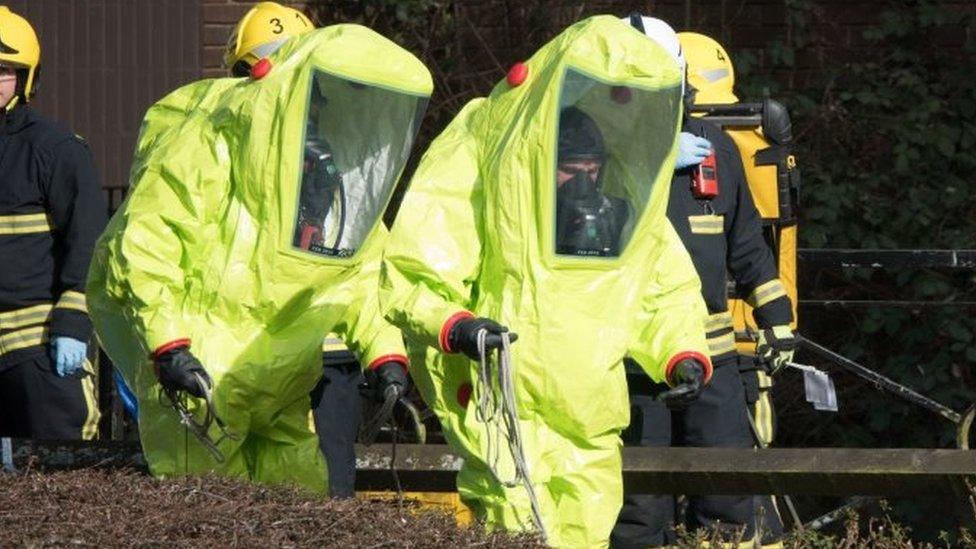
The attempted murder of Sergei and Yulia Skripal on British soil led to accusations of Russian state involvement
Meanwhile, the UK says Russian ex-spy Sergei Skripal, 67, and his 33-year-old daughter, who were found slumped on a park bench in Salisbury in Wiltshire on 4 March, were exposed to a nerve agent belonging to the Novichok group.
This analysis was backed by the international chemical weapons watchdog.
The attempted murder of the pair on British soil led to accusations of Russian state involvement. Russia has denied involvement in the attack.
Yulia Skripal left hospital a month after the attack, and her father was discharged a month later.
Alastair Hay, an expert on chemical weapons at Leeds University, said the UK was "absolutely right" to press for new powers.
"Whether it happens and whether there are sufficient votes that the UK can garner to support the move is still an open question really," he told the BBC.
"Of course you have the UK, the Unites States, France and many others who want the OPCW to have those powers.
"But there are others who are very concerned about it. And that includes Russia and some of its allies. So, it's divided and it's a question of how many allies the UK can muster."
- Published2 September 2020
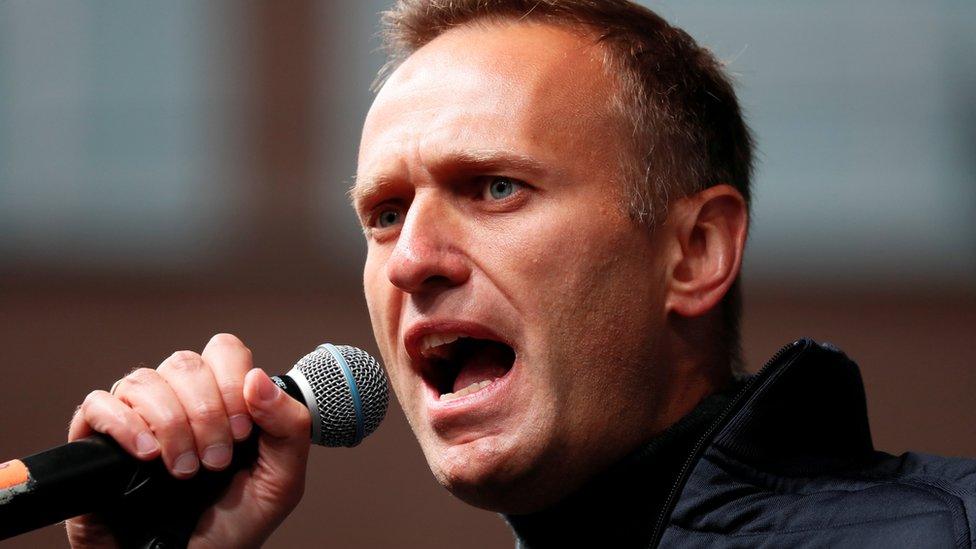
- Published22 April 2018
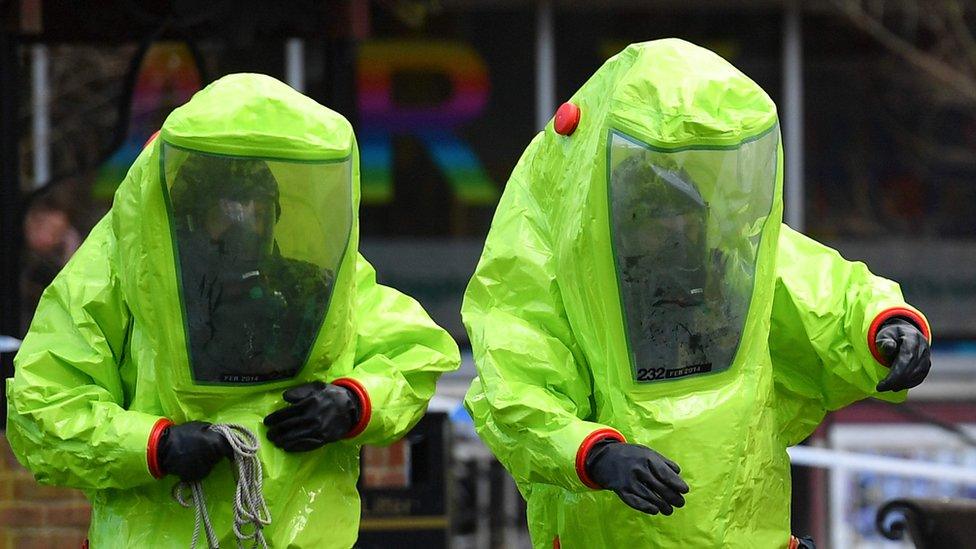
- Published27 February 2018
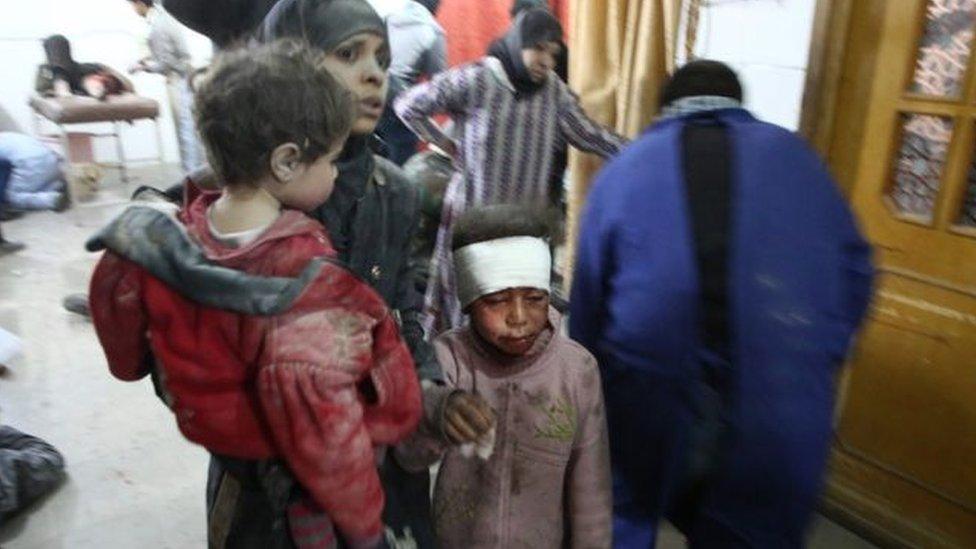
- Published18 April 2018
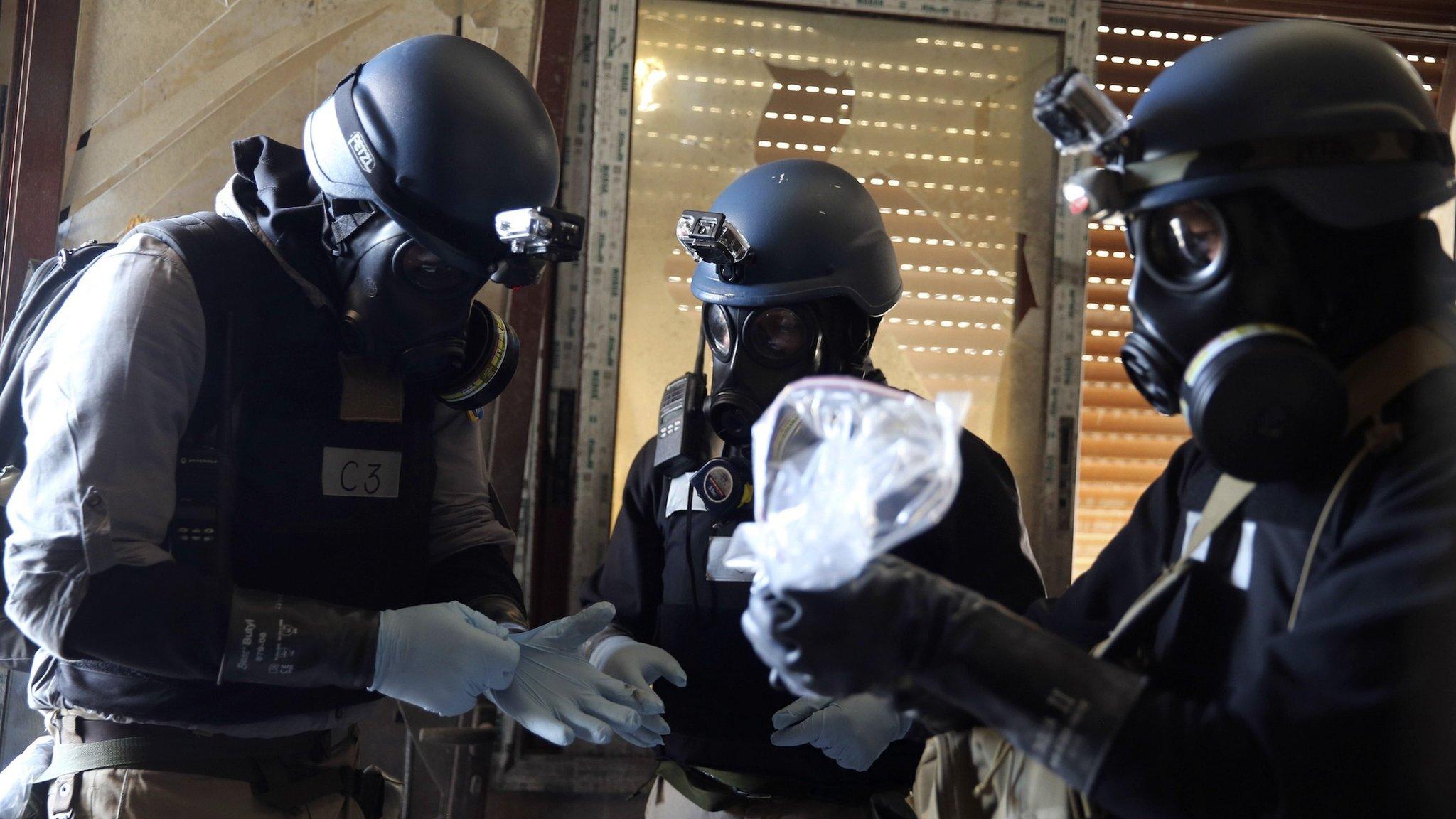
- Published10 July 2018
